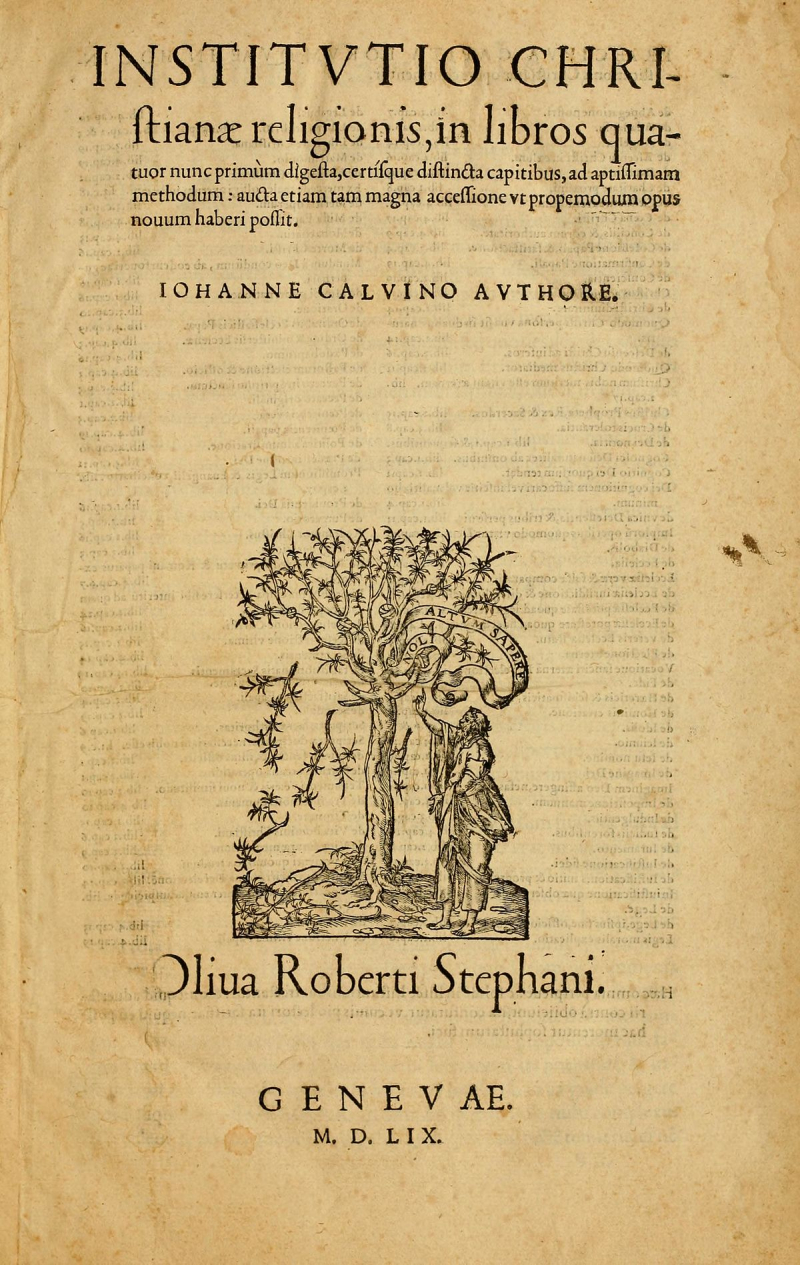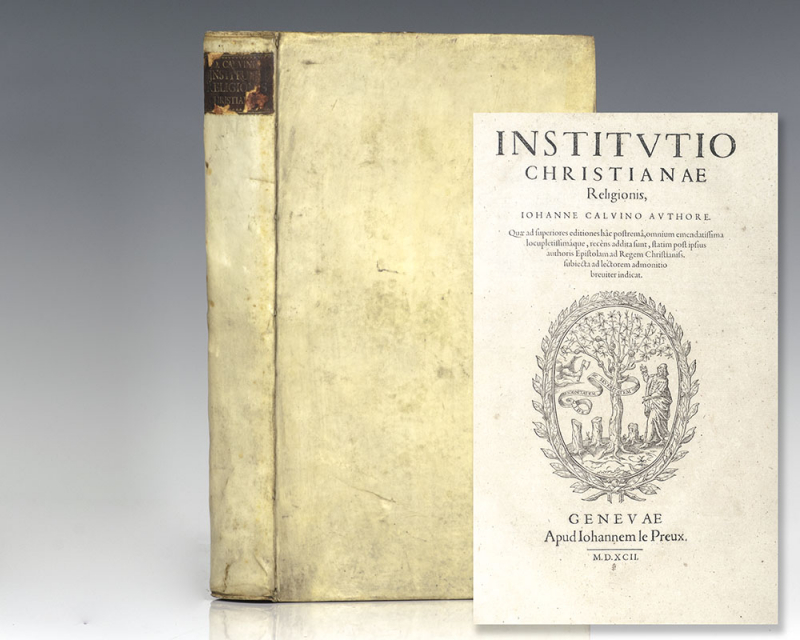Calvin edited the Institutes of the Christian Religion for nearly his entire career
It is a fact that Calvin edited the Institutes of the Christian Religion for nearly his entire career. Calvin developed his theology in his biblical interpretations, sermons, and treatises, but his magnum opus, the Institutes of the Christian Religion, is the most thorough expression of his views. He intended for the book to be read in connection with his commentaries as a summation of his views on Christian theology. The numerous versions of that work spanned virtually his entire reforming career, and the book's subsequent updates reveal that his theology changed very little from his adolescence until his death. The initial edition, published in 1536, had only six chapters. The second version, published in 1539, was three times as long because he included chapters on Melanchthon's Loci Communes. He supplied additional information and expanded a chapter on the Apostles' Creed in 1543. The Institutes were published in their final edition in 1559. The work had grown to four volumes of eighty chapters each, each called after a creed statement: Book 1 on God the Creator, Book 2 on the Redeemer in Christ, Book 3 on receiving Christ's Grace through the Holy Spirit, and Book 4 on the Society of Christ or the Church.
John Calvin's seminal book of systematic theology is Institutes of the Christian Religion (Latin: Institutio Christianae Religionis). It was first published in Latin in 1536 (at the same time as Henry VIII of England's Dissolution of the Monasteries) and in his native French tongue in 1541, with the definitive versions appearing in 1559 (Latin) and 1560 (French). The book was designed as an introductory textbook on the Protestant creed for individuals with some prior understanding of theology, and it addressed a wide range of theological subjects, from church and sacraments doctrines through justification by faith alone and Christian liberty. It vehemently opposed the beliefs of those Calvin regarded as unorthodox, particularly Roman Catholicism, to which Calvin claims he was "deeply dedicated" before his conversion to Protestantism. The Institutes is a primary source for the theology system embraced by the Reformed churches, commonly referred to as Calvinism.







